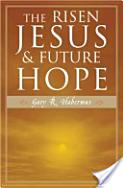In recent years, popular books and movies such as Dan Brown’s The Da Vinci Code have done much to popularize the secular view that the Bible is riddled with mistakes and therefore should not be trusted. A causal stroll through the local Barnes and Noble turns up many volumes, such as Misquoting Jesus by Bart D. Ehrman, all of which seek to paint the Bible as less than trustworthy as a source of truth in modern society. While these attacks on the veracity of the Scriptures are nothing new, they do appear to be increasing in our day as the notion of absolute truth continues to be challenged by postmodern thought. As a result, many sincere although ungrounded believers have had their faith rocked by assertions that the Bible is full of mistakes as well as political and sexist conspiracies. How should one respond to these attacks on the accuracy and reliability of the Bible? Simply stated, is the word of God inerrant?
Christian philosophers and theologians have spilt much ink debating the doctrine of the inerrancy of the Scriptures. In his book, Basic Theology, Charles C. Ryrie outlines the ongoing debate amongst Evangelical Christians regarding this issue. In Chapter 12 entitled “The Inerrancy of the Bible,” Ryrie asks the following important questions with regard to inerrancy:
How important is this doctrine then? If it is a biblical teaching, then to
deny it is to deny part of the truthfulness of the Bible. But consider
this: If the Bible contains some errors, however few or many, how can one be
sure that his understanding of Christ is correct? Perhaps one of those
errors concerns something about the life of Christ. It would not be
impossible that there might be an error about the crucial matter of His death
and resurrection. What then would happen to one’s Christology? It
would be changed, perhaps so drastically that there would be no Christian faith
to embrace.(1)
The modern critics referred to above are endeavoring to sow the seeds of doubt in order to overthrow the faith or some and/or cause people to view the Bible as unreliable. Consequently, a detailed study on the issue of the veracity of the Scriptures is paramount given the state of our current culture.
Unfortunately, much of professing Christendom is not equipped to deal with the issue of inerrancy because their own teaching on the subject is inconsistent. For example, conservative evangelical theologians will argue for the inerrancy of the original autographs and then admit that the original manuscripts have been lost and all that remains are copies which are subject to error. If only the originals were inerrant and they are lost, how can the Bible still be without error? While in Bible College, this author was ridiculed for holding the position that the King James Bible was God’s perfectly preserved word for English-speaking people. Apparently, only uneducated believers were foolish enough to believe that the same God that could exercise the supernatural energy to verbally inspire every word of scripture could also exert the same supernatural force to preserve that which He inspired.
In short, if only the originals were inerrant, then maybe the modern critics are correct. Perhaps the Bible has been altered by the work of a sexist church leadership bent on oppressing woman and maintaining male authority as suggested by Dan Brown in The Da Vinci Code. While my former professors would dispute Dan Brown’s assertions and affirm that the Bible is inerrant and reliable, something is drastically wrong because these same men also teach that there is no such thing as a perfect Bible. Herein lies the goal of the current essay, to utilize scholarly arguments for inerrancy in an attempt to show the logical inconsistencies of those who would argue that a perfect Bible does not exist. In short, why argue for inerrancy if what you’re arguing for has been lost?
Endnotes
1) Charles C. Ryrie, Basic Theology (Wheaton, IL: Victor Books, 1986), 77.


























No comments:
Post a Comment